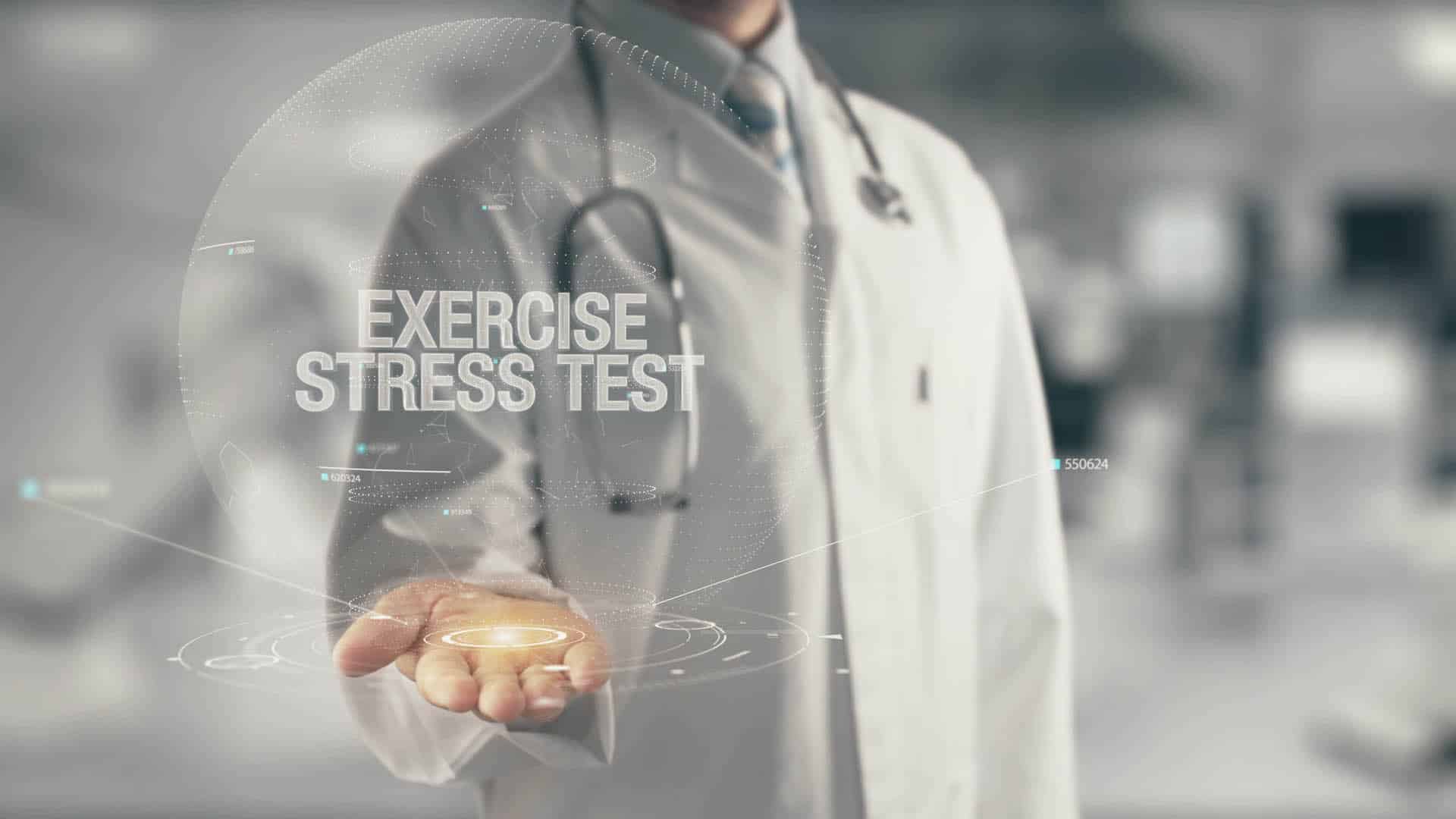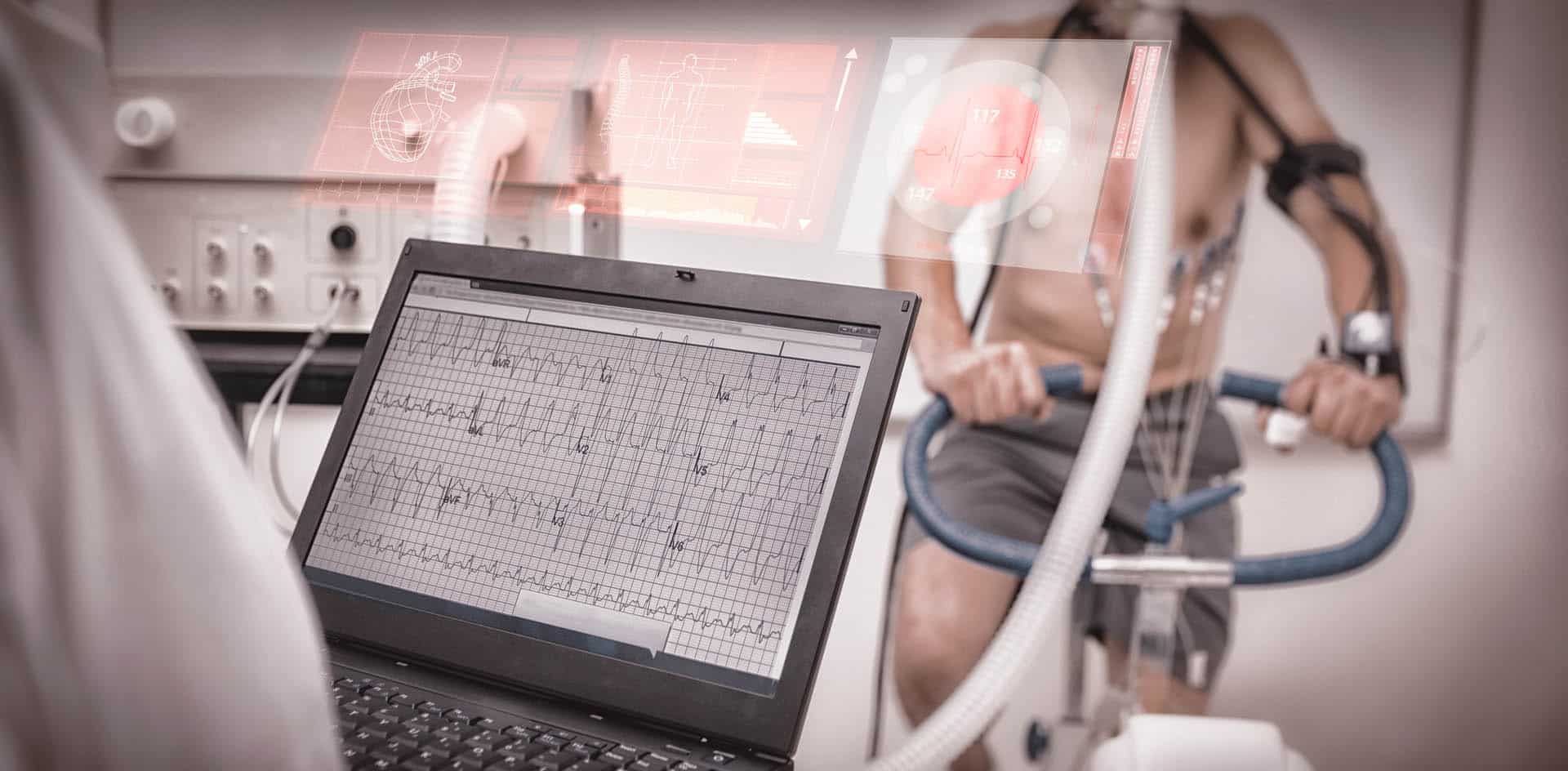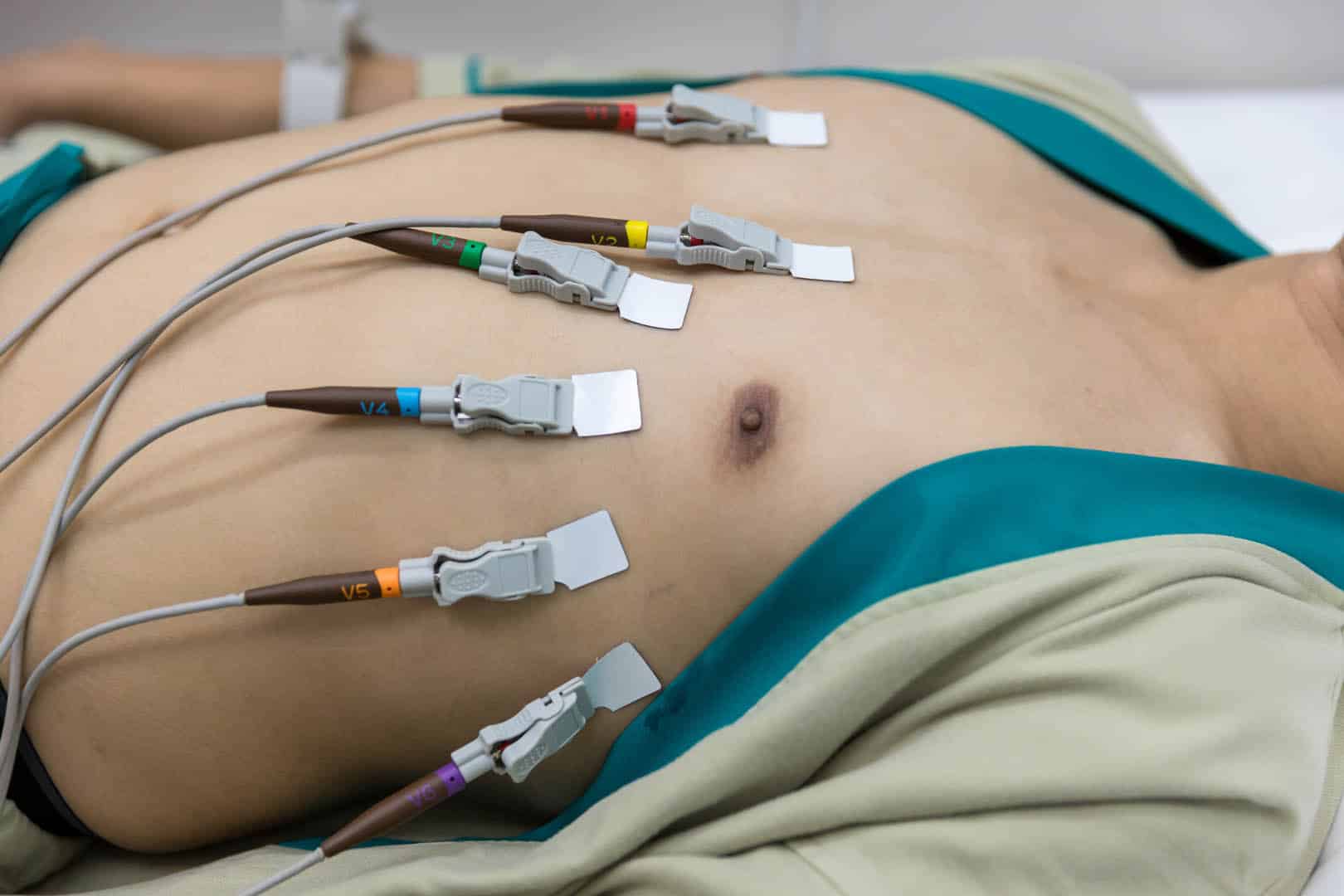Cardiac Stress Test
General Introduction
Understanding how your body functions during exercise can be crucial in determining the cause of symptoms related to exertion and is a key element of cardiac diagnostic services. In addition, Dr Jordan undertakes stress testing services (including treadmill exercise tests) as part of the DVLA and Civil Aviation Authority licensing requirements.
Cardiac Exercise Stress Tests
ECG cardiac exercise tolerance tests are commonly used to objectively assess your exercise capacity against an internationally-recognised protocol (the Bruce protocol). Often referred to as an exercise tolerance test, the examination involves walking on a treadmill, which gradually increases in speed and slope gradient as the test progresses. For most people, the treadmill will be stopped whilst you are walking briskly, rather than needing you to run. The aim of the protocol will be for you to continue exercising until you reach your target heart rate, or until you need to stop due to fatigue, breathlessness or other symptoms.
During exercise, you will be monitored with an ECG tracing and your blood pressure will be measured every 3 minutes. The ECG machine will remain connected for 6 minutes after you finish exercise, as this provides additional information concerning your heart’s health.
The diagnostic information provided by an exercise test can be enhanced by using ultrasound imaging (echocardiography) before and immediately after exercise. This is termed stress echocardiography and is a particularly powerful tool for investigating blockages in the arteries supplying blood to your heart (coronary artery disease). If this is needed in your case, Dr Jordan will discuss this with you at the time of your consultation as it forms part of his specialist services.
In contrast to many other providers, Dr Jordan will always be present for stress tests undertaken on a private basis. A senior physiologist will assist Dr Jordan with the test and a cardiac specialist nurse will also be present, if needed.
Who Needs a Cardiac Stress Testing?
Cardiac stress testing is frequently recommended to explore symptoms felt on exertion, such as breathlessness, palpitation, fatigue and chest pain. In addition, a treadmill exercise test is undertaken as routine after cardiac surgery and to provide information for the DVLA or CAA services. For DVLA exercise tests, 9 minutes of exercise on the treadmill (Bruce protocol) needs to be completed without changes on your ECG in order to pass the test.
Preparing for your Test
Please arrive 10 minutes before your cardiac stress test so that you can rest in the waiting area beforehand. We ask that you wear comfortable clothes suitable for a brisk walk, specifically trainers if possible, and avoid heavy meals for 2 hours prior to your treadmill test.
You should also continue all of your usual medications for the test, unless specifically advised not to by Dr Jordan or his team.
Results and Treatment for Better Health
The results of your test will be available immediately afterwards. Once the analysis of data is completed, you will have the opportunity to discuss these with Dr Jordan and agree the next steps in terms of your treatment.
Why Choose a Private Cardiac Exercise Stress Test?
One of the key advantages of undergoing your exercise test privately is that Dr Jordan will be present during the test, which would not be the case routinely for NHS services. This allows him to directly supervise your exercise and be present when you have your symptoms. This also means that you will receive the results immediately after your test has been completed.
Frequently Asked Questions
How often should a stress test be done?
Stress testing is most commonly undertaken to investigate symptoms and therefore is not usually prescribed at set intervals. For stress testing for driving licence purposes, the frequency of testing is dictated by the DVLA.
How long does a cardiac stress test take?
A stress ECG (exercise tolerance test) will usually take approximately 30 minutes. Stress echocardiography is scheduled over 60 minutes, though may be shorter, particularly if exercise stress testing is used.
Can you go home after a stress test?
You can go home immediately after your stress test, as long as you feel back to normal. For dobutamine stress echocardiography, we would recommend that you wait for 15-30 minutes within the department, even if you feel well, and ask a friend or relative to take you home.
Does a heart stress test hurt?
Exercise stress testing should not be painful. During dobutamine stress testing, some individuals feel mild chest discomfort, though this resolves shortly after stopping the medication.
When should you get a stress test?
Stress testing is usually undertaken to investigate the cause of symptoms. For some individuals, particularly those undergoing stress testing for driving licence purposes, you will be told by the DVLA when you need to book your test.
What should you not do before a stress test?
It is advisable not to eat for 4 hours before a stress test, to allow you to exercise to your full capacity. If undertaking the test for driving licence purposes, you may wish to consider increasing your exercise activities in preparation for your test.
Should someone accompany you to a stress test?
If possible, we would advise that someone accompanies you for the test, though this is not mandated. For dobutamine stress testing, you should ask a friend or relative to drive you home after the test.
Can I eat or drink before a stress test?
We would advise not eating for 4 hours before a stress test, though this is not mandated.
What to wear to a heart stress test?
Please wear loose-fitting, comfortable clothing and bring trainers if possible.
DORSET SELF-FUNDING CONSULTATION TARIFFS
Initial appointment: £220 | Follow-up appointment: £150
Or Contact Dr Jordan’s PA directly: 01202 096996


